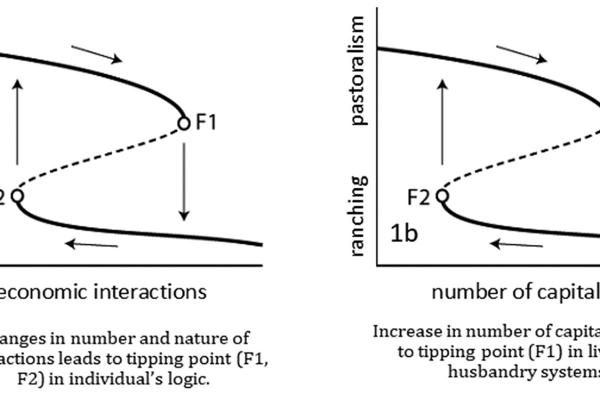Critical transitions from Pastoralism to Ranching

Together with Nikolaus Schareika and Chris Brown, I published a paper in Current Anthropology on Critical Transitions from Pastoralism to Ranching in Central Africa. It is the result of a slow science endeavor that Nikolaus and I started way back in 2014.
Here is the abstract: The goal of this paper is to explain why and how increasing commoditization and incorporation in the market economy are only now leading to a critical transition from pastoralism to ranching in Central Africa. While there are similarities between pastoralism and capitalism—in both systems, entrepreneurs are strategically maximizing their “stock”—there are also differences. We argue that these differences can be understood as two distinct types of logic that are embedded within larger sociocultural systems: cattle logic and capital logic. Understanding how these logics operate within different systems is critical for explaining the current shift from pastoralism to ranching in Central Africa. We outline a theoretical model that integrates concepts from practice theory and the literature on critical transitions in social-ecological systems to explain the shift. We illustrate the theoretical model using a case comparison of three different livestock husbandry systems: Woɗaaɓe pastoralists in southeastern Niger, peri-urban Fulani pastoralists in the Far North Region of Cameroon, and Fulani ranchers in the Adamawa Region of Cameroon. We then use these cases to explain the persistence of cattle logic among the Woɗaaɓe in Niger, as well as the shift from cattle logic to capital logic among Fulani in Cameroon. Studying the transition from pastoralism to ranching is important because it has major implications, including increasing economic inequality, weaker community relations, and potential degradation of grazing lands, for livestock husbandry systems in Central Africa.
